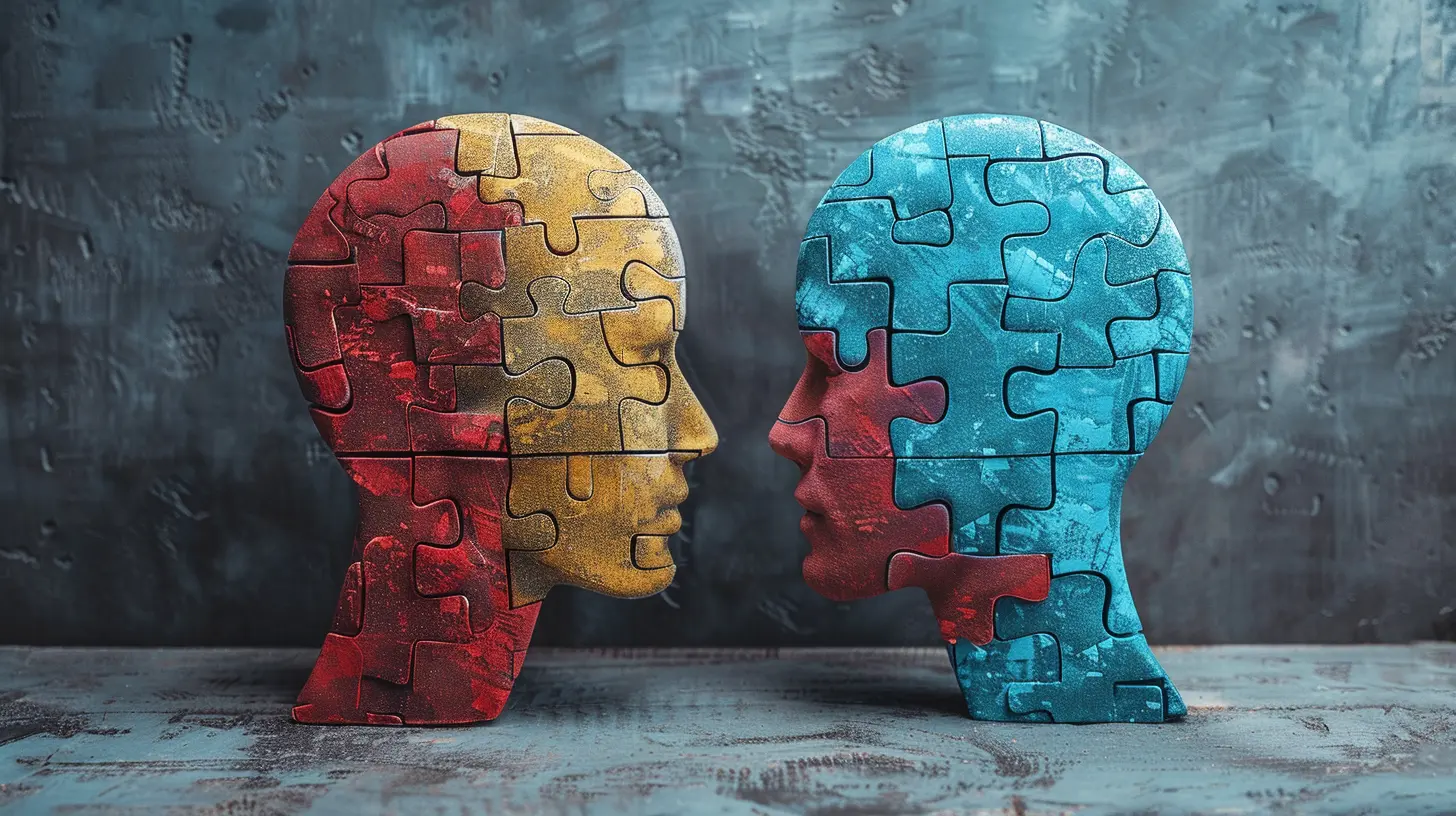How Emotional Intelligence Contributes to Problem-Solving Success
8 May 2025
Introduction
Ever felt like you're stuck in a never-ending loop of problems with no clear solution in sight? You're not alone. The secret weapon that many successful problem solvers have in their arsenal isn't just intelligence—it's emotional intelligence (EQ).
Emotional Intelligence isn't just some buzzword tossed around in leadership seminars. It plays a massive role in how we tackle challenges, make decisions, and navigate life’s hurdles. If you're wondering how your emotions (and how you handle them) can make or break problem-solving success, keep reading!

What Is Emotional Intelligence?
Before we dive into the juicy details, let’s break down what emotional intelligence actually is. In simple terms, EQ is your ability to understand, manage, and express emotions—both yours and those of others.According to psychologist Daniel Goleman, emotional intelligence consists of five key components:
1. Self-awareness – Understanding your emotions and their impact
2. Self-regulation – Managing emotions effectively
3. Motivation – Having the inner drive to achieve goals
4. Empathy – Understanding and relating to the emotions of others
5. Social skills – Building strong relationships and effective communication
But what does all this have to do with solving problems? A lot more than you might think!

The Role of Emotional Intelligence in Problem-Solving
1. Self-Awareness Helps Identify the Real Problem
Have you ever been so overwhelmed by frustration that you couldn’t even think straight? That’s what happens when emotions cloud judgment.Being self-aware means recognizing when emotions are interfering with logical thinking. When you understand your emotional triggers, you can take a step back, assess the situation more objectively, and pinpoint the actual problem instead of just reacting to the chaos.
Imagine you're working on a group project, and a teammate isn’t pulling their weight. Your first instinct might be to lash out. But if you're emotionally intelligent, you’ll recognize that frustration is driving your reaction. Instead of attacking the person, you'll focus on finding a solution—like calmly addressing the issue or redistributing tasks.
2. Self-Regulation Keeps Emotions from Hijacking Decisions
We’ve all been there—making a hasty decision out of anger or stress, only to regret it later. Emotional intelligence helps you control impulsive reactions and make rational choices.Let’s say you receive negative feedback at work. Instead of immediately getting defensive or demotivated, self-regulation allows you to process your emotions, absorb the feedback objectively, and use it to improve. In problem-solving, keeping a cool head can be the difference between a well-thought-out solution and a knee-jerk reaction that makes matters worse.
3. Motivation Fuels Persistence
Ever noticed how some people tackle problems with relentless determination while others give up quickly? A big part of that comes down to emotional intelligence.People with high EQ don’t let setbacks define them. They stay motivated, adjust their approach, and keep pushing for solutions. Whether you're studying for an exam, dealing with a tough work project, or facing personal challenges, having that inner drive makes problem-solving much more effective.
Think about great inventors—do you think Thomas Edison got the light bulb right on his first try? Nope! But it was his perseverance and emotional resilience that kept him going despite countless failures.
4. Empathy Enhances Collaboration and Perspective-Taking
Most problems don’t exist in a vacuum—especially in team settings. Understanding different perspectives is crucial for finding solutions that work for everyone.Let’s say two co-workers have a disagreement. Without empathy, they might stay stuck in their own viewpoints, leading to tension and unresolved conflicts. But with emotional intelligence, they can recognize each other’s concerns, find common ground, and work towards a solution that benefits both parties.
When you step into someone else’s shoes, you don’t just see a solution—you see the best solution.
5. Social Skills Facilitate Effective Communication
Let’s face it—poor communication can turn small problems into massive disasters. Strong social skills help in expressing ideas clearly, listening actively, and finding solutions together.Take negotiations, for example. Whether you’re bargaining a job offer, resolving a dispute, or discussing plans with a friend, emotional intelligence ensures that you communicate in a way that fosters understanding rather than conflict.
Problem-solving isn’t just about finding answers; it’s about getting people on board with those answers. And that’s where social skills shine.

Practical Ways to Boost Emotional Intelligence for Better Problem-Solving
So, how do you improve your EQ and become a master problem solver? Here are some actionable tips:1. Practice Self-Reflection
At the end of each day, take a few minutes to reflect on your emotions. When did you feel frustrated? What triggered it? How did you react? Understanding your emotional patterns helps you manage them better in the future.2. Learn to Pause Before Reacting
Next time you’re about to react emotionally to a problem, pause. Take a deep breath. Ask yourself: Is this emotion helping or hurting my decision-making? This simple habit can prevent a lot of poor choices.3. Develop Active Listening Skills
Instead of thinking about your response while someone is talking, focus entirely on understanding what they're saying. When people feel heard, problem-solving becomes much smoother.4. Practice Empathy Daily
Try seeing situations from different perspectives. Ask yourself, How would I feel if I were in their shoes? The more you practice empathy, the better you'll get at finding fair and effective solutions.5. Cultivate Resilience
Problems are inevitable, but how you respond to them makes all the difference. Instead of letting setbacks discourage you, view them as learning opportunities. Emotional resilience turns challenges into stepping stones.
Conclusion
Problem-solving isn’t just about logic and reasoning—it’s about emotions too. When you develop emotional intelligence, you gain greater control over your reactions, communicate more effectively, and find solutions that truly work.So, the next time you’re faced with a tough problem, remember: EQ might just be the missing piece of the puzzle. Want to become a better problem solver? Start working on your emotional intelligence today!
all images in this post were generated using AI tools
Category:
Problem SolvingAuthor:

Anita Harmon
Discussion
rate this article
6 comments
Peyton Stevens
Emotional intelligence enhances collaboration and innovative problem-solving approaches.
May 15, 2025 at 2:16 AM

Anita Harmon
Thank you for your insightful comment! I completely agree—emotional intelligence plays a crucial role in fostering teamwork and creativity in problem-solving.
Will Black
Critical for effective solutions!
May 14, 2025 at 3:30 AM

Anita Harmon
Thank you! Emotional intelligence truly plays a vital role in navigating complex problems and fostering collaboration.
Amalia Morgan
Emotional insight drives solutions.
May 13, 2025 at 11:24 AM

Anita Harmon
Thank you for your comment! I completely agree—emotional insight is crucial for understanding challenges and fostering innovative solutions.
Alice McGill
Emotional intelligence is a game-changer in problem-solving. By effectively managing emotions and fostering empathy, individuals can navigate challenges with clarity and collaboration. Developing this skill not only enhances decision-making but also cultivates stronger relationships, leading to innovative solutions and sustained success. Embrace emotional intelligence to elevate your problem-solving capabilities!
May 11, 2025 at 8:54 PM

Anita Harmon
Thank you for your insightful comment! I completely agree—emotional intelligence is indeed vital for effective problem-solving and fostering collaboration. Embracing these skills can truly transform our approach to challenges.
Craig Clark
Emotional intelligence empowers problem-solving by fostering collaboration, understanding, and innovative solutions. Embrace it!
May 11, 2025 at 12:53 PM

Anita Harmon
Thank you for highlighting the importance of emotional intelligence in problem-solving! Embracing collaboration and understanding truly drives innovative solutions.
Skylar Alexander
Great insights! Emotional intelligence truly enhances our problem-solving abilities, fostering collaboration and empathy in challenging situations. Thanks for sharing!
May 9, 2025 at 10:45 AM

Anita Harmon
Thank you! I'm glad you found the insights valuable. Emotional intelligence really does play a crucial role in effective problem-solving!




